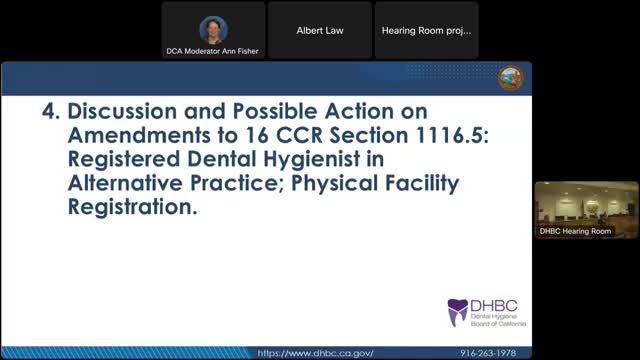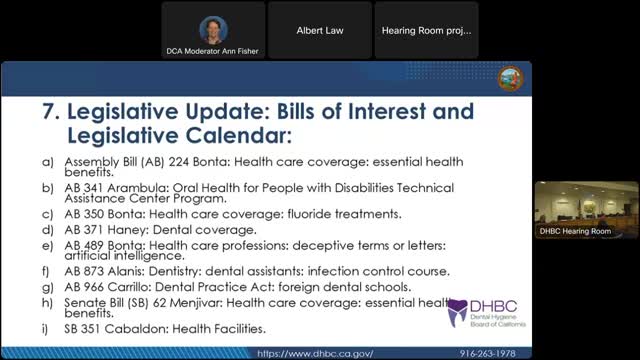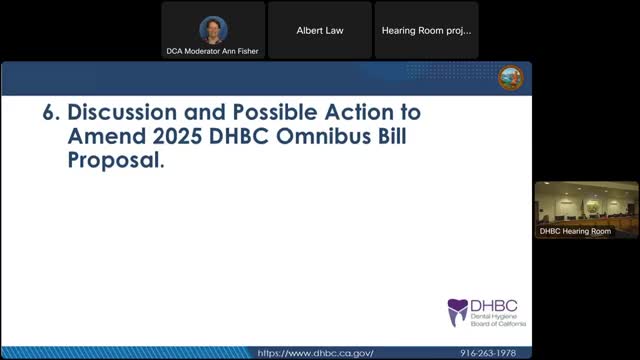Article not found
This article is no longer available. But don't worry—we've gathered other articles that discuss the same topic.

Board committee approves amended RDHAP facility registration language; public commenters raise AED and oxygen access concerns

Committee sets positions on several bills, including support for fluoride coverage and opposition to infection-control timing change

